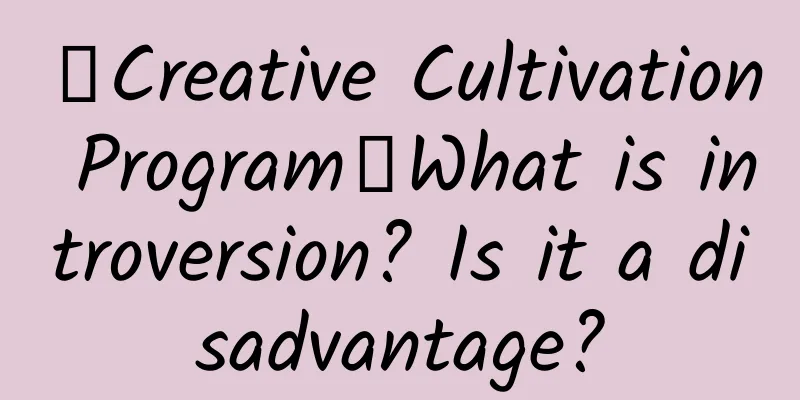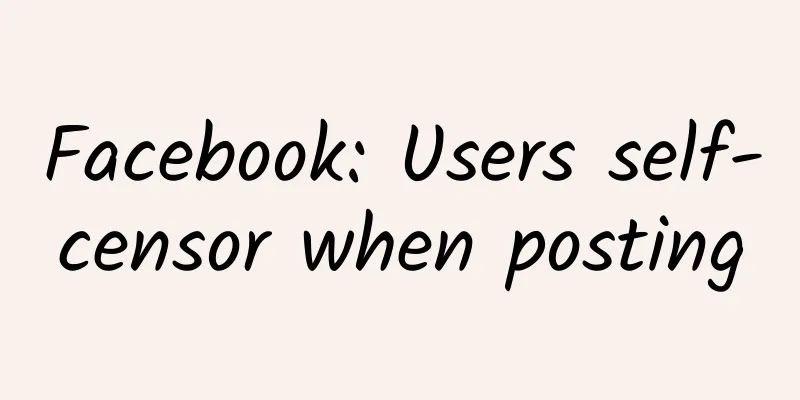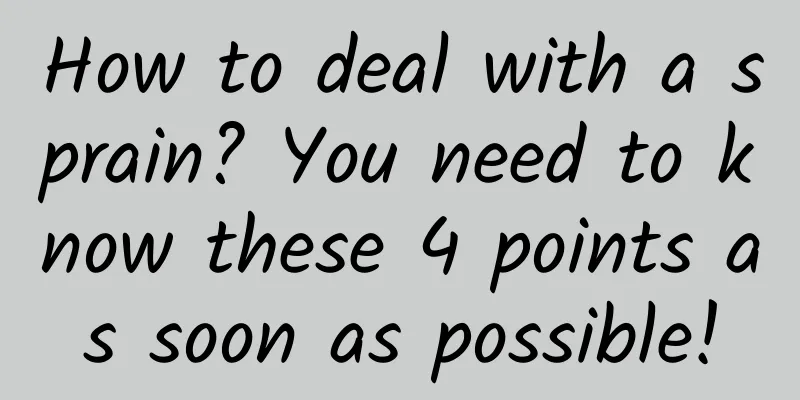【Creative Cultivation Program】What is introversion? Is it a disadvantage?

|
Introverts always experience a lot of "social phobia moments": I would rather take an hour-long detour than ask for directions once; When introducing myself, I tried my best but could only manage two or three sentences; When I was shopping in a mall, the moment the shopping guide came over, I suddenly felt that this store was not a good place to shop in... Many introverts envy extroverts who can speak naturally and make many friends in social situations. Extroverts may not understand: "Isn't it just asking for directions? What's so difficult about that?" As the saying goes, "people's sorrows and joys are not shared", extroverts simply don't understand the pain of introverts. Today, let's talk about what is introversion? Is it a disadvantage? What is an introvert? The character we often talk about refers to personality in psychology. It is a person's tendency, essential, and stable psychological quality. It also refers to a person's unique and habitual way of thinking and behavior habits. In early personality theories, individuals were often divided into different types, and introversion and extroversion were one of the categories. For example, Jung of the psychoanalytic school proposed the theory of introversion-extroversion personality type, which believed that extroversion refers to directing interests and attention to external objects, often with characteristics such as emotional expression, enthusiasm, and good communication, while introverts direct their interests and attention to themselves, tend to self-analyze, and are cautious, thoughtful, and have a narrow range of social contacts. Type theory divides people into different types, but these types are independent and discontinuous. Suppose there is a person who is between introversion and extroversion, neither very introverted nor very extroverted, how should he be divided? Therefore, in recent years, psychologists tend to agree with the trait theory, believing that personality should be described by some persistent and continuous qualities or characteristics, imagining personality as a polyhedron, and describing the personality of an individual from different aspects. The most popular theory among psychologists is the Big Five personality theory, also known as the personality ocean, because the first letters of the five dimensions can be spelled out as the English word for ocean (OCEAN). The Big Five Personality Theory uses extraversion to describe a person's degree of introversion. Extraversion refers to an individual's need for external stimulation and the ability to obtain happiness. People with high extraversion are active and like to socialize, while people with low extraversion focus more on themselves and are relatively quiet. Extraversion is like a coordinate axis, with extreme introversion and extreme extroversion at the two ends. Everyone can find his or her own position on this axis, which represents his or her degree of extraversion. From type theory to trait theory, we can actually find that psychology is increasingly inclined to believe that introversion and extroversion are just one of a person's traits, which determines how a person balances the inner and outer worlds. If you have more introverted traits, you will be more able to get pleasure from your heart, such as reading, doing handicrafts, watching anime, and other activities that can be completed by one person, which can make you very happy. People who tend to be extroverted don't like to work alone, but prefer group activities and gatherings, and will be more active as a result. Is being introverted a disadvantage? Although modern psychology believes that introversion and extroversion are more like value-neutral traits, just one aspect of a person's personality, and there is no distinction between good and bad, many studies have found that introverts are more likely to encounter some mental health problems. For example, happiness and well-being have long been a research topic in psychology. Studies have found that introverts have lower sense of well-being than extroverts. Psychologists believe that this may be because introverts are always more focused on the negative side of things. When faced with negative results or evaluations such as failure and criticism, they will have a greater stress response and find it more difficult to let go of opportunities that cannot be obtained or missed, which leads to emotions such as regret and self-blame. Because happiness is more of a self-examination and evaluation, introverts are usually more inclined to "examine themselves", and negative experiences always have a greater and longer-term impact than positive experiences, so introverts generally have a lower sense of well-being. Extroverts will have more social interactions and thus gain more social support. Just imagine, when something bad happens to you, if many people care about you and support you, the negative impact of this incident on you will inevitably be smaller, and the incident may even be resolved smoothly. Therefore, psychologists have also found that extroverts have relatively better psychological resilience and coping ability, which will make extroverts more immune to negative energy attacks. At the same time, many studies have found that introversion and extroversion are, to a certain extent, a congenital trait. Children may show introversion in their early years, and introverted children often find it difficult to establish and maintain friendships with their peers, and it is not easy for them to adapt to school life. These are not conducive to the development of good social adaptation and interpersonal skills in children, and these abilities will also extend to adult life and career, producing a series of chain reactions or butterfly effects. In other words, introverts may be more likely to be single from birth and find it more difficult to become leaders in the workplace. How to overcome the shortcomings of introversion? In general, an introverted personality can indeed easily lead to some mental health or social interaction problems, but this is not necessarily the fault of the introverted personality itself, but rather the good development of the attitude and coping methods towards negative events, social adaptation and communication skills that come with the introverted personality. If you are an introvert, it does not mean that you have to change your personality, because personality is a stable trait that is developed through a combination of your innate and acquired qualities over a long period of time. Changing your personality may also make it more difficult for you to adapt to your current life. The fundamental reason for the shortcomings of an introverted personality lies in your attitude and coping methods towards negative events, as well as your social adaptability and interpersonal skills, which can all be gradually changed and cultivated. If you find yourself overly focused on negative experiences because of your strong introverted traits, and easily get anxious or lost when some negative events occur, affecting your daily life and even making it difficult for you to have normal interpersonal relationships, here are some commonly used and relatively effective methods in psychology: **1. Cognitive behavioral therapy: **This is a method based on the concept of cognitive restructuring. This method believes that maladaptive behaviors and emotions are derived from maladaptive cognition. We need to realize that the event itself is not the direct cause of our bad emotions, but irrational or wrong cognition. Therefore, we need to reflect on our irrational cognition and try to correct it. If we persist in it for a long time, we can change our irrational automatic thinking and have the correct attitude and coping methods towards negative events. Psychologists have listed 12 common irrational cognitions, including: (1) Exaggeration (catastrophizing) or minimization: For example, exaggerating one’s own mistakes and minimizing one’s own contributions. (2) Reasoning based on emotions: Believing that your negative feelings are the truth of things. For example, because you feel guilty, you believe that you must be wrong. (3) Labeling: Labeling yourself as a “loser” even though you made only one specific mistake. (4) Over-taking responsibility: Thinking that you are the cause of certain external negative events, when in fact you are not primarily responsible or the responsibility does not lie entirely with you. (5) Overgeneralization: Using a small negative event as evidence of endless failure. (6) All-or-nothing thinking: Seeing things in black and white. If your performance is less than perfect, you think you have failed. (7) Mental filtering: Picking out a small negative detail and dwelling on it so much that it darkens your entire view of reality, just as a drop of ink discolors an entire river. (8) Denying positive experiences: For one reason or another, you reject positive experiences by insisting that they “don’t count,” thus maintaining a negative belief that contradicts your everyday experience. (9) “Must” and “should”: Using these words turns everything into an emergency, rather than doing it when it is truly necessary, leaving you no time to breathe. (10) Jumping to conclusions: You make negative interpretations even when there are no clear facts to strongly support your conclusions. (11) Mind reading: Jumping to the conclusion that someone is reacting negatively to you without verifying the facts. (12) Predictive Error: Expecting things to turn out badly and then treating your prediction as an established fact. 2 **.** **Acceptance and Commitment Therapy: **This is a method based on improving psychological flexibility, that is, seeking to establish a broader, flexible and effective way of coping, rather than just refuting the specific cognitive content of narrow psychological problems. Psychologists believe that people are prone to adopt wrong ways such as experiential avoidance or narrow self-limitation to cope with events, resulting in long-term accumulation of negative emotions, as well as excessive focus on past mistakes or imagining a terrible future, resulting in an inability to clear negative emotions or a lack of self-worth. Many psychologists recommend the use of mindfulness meditation, which can effectively clear long-term accumulated negative emotions, prompting us to live in the present, let go of wrong obsessions, and improve self-esteem and self-worth, thereby improving our ability to cope with negative events and avoiding mental health problems. 3. Self-disclosure: Self-disclosure refers to a person revealing his or her thoughts, ideas, and experiences to others. Social psychology believes that self-disclosure can effectively promote people to establish friendships or close relationships. There are a few points to note about self-disclosure: (1) Self-disclosure is a two-way interactive process that requires both parties to express themselves to each other. If one person is always talking about himself/herself, it is equivalent to suppressing the other person's self-disclosure, which is not conducive to building a relationship between the two parties. (2) Self-disclosure is context-based. When sharing your thoughts and experiences, you must pay attention to the current context and selectively express information that is appropriate to the current context. (3) Self-disclosure can be divided into positive and negative. In the early stages of a relationship, expressing as much positive self-disclosure information as possible can help establish a better initial relationship. References [1] Ozer DJ, Benet-Martinez V. Personality and the prediction of consequential outcomes[J]. Annual review of psychology, 2006, 57: 401. [2] Bucher MA, Suzuki T, Samuel D B. A meta-analytic review of personality traits and their associations with mental health treatment outcomes[J]. Clinical Psychology Review, 2019, 70: 51-63. [3] Kotov R, Gamez W, Schmidt F, et al. Linking “big” personality traits to anxiety, depressive, and substance use disorders: a meta-analysis[J]. Psychological bulletin, 2010, 136(5): 768. [4] Lattie EG, Stiles-Shields C, Graham A K. An overview of and recommendations for more accessible digital mental health services[J]. Nature Reviews Psychology, 2022, 1(2): 87-100. |
Recommend
How to relieve stomach bloating during pregnancy?
Pregnancy is a very special time for pregnant mot...
Can I get an IV drip when I have my period?
We all know that due to the uniqueness of women&#...
Breast cancer pathological classification
Breast cancer is a disease that is the same as ot...
What medicine can be used for vulvar white spots
The female vagina is always moist and is most lik...
Can the wrapped bean curd be frozen? How to freeze the wrapped bean curd?
We all know that bean curd is a common type of pa...
What does menstrual bleeding mean?
As the saying goes, women are a kind of wonderful...
How to have an abortion during breastfeeding?
Pregnancy and childbirth is a long and painful pr...
National Liver Care Day丨Early prevention and early screening to avoid liver cirrhosis
March 18, 2024 is the 24th "National Liver C...
Female urethra itching? Or these reasons
Female urethral itching is a common symptom of gy...
Is it pregnancy if I have my period a little bit?
Healthy married women may become pregnant at any ...
How to improve irregular menstruation
Although menstruation is a normal physiological p...
Ovulation on the right side for 7 consecutive months
Is there a problem if the ovulation period is onl...
Is soup more nutritious than meat? Soup contains more fat! These three types of people should be careful when drinking soup
Is soup more nutritious than meat? Soup contains ...
Can pregnant women eat prawns?
Prawns are a very common delicacy. Prawns can sup...
I have stomach pain before my period but it never comes
Many people have regular menstruation, but some p...









